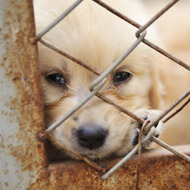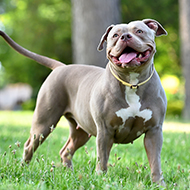
National Assembly vote could see jump from six months to five years
Tougher prison sentences for animal cruelty have been introduced in Wales following the introduction of new legislation announced by Defra.
Welsh environment minister Lesley Griffiths said on Wednesday (26 June) that she will be putting forward a legislative consent motion for those aspects of the Animal Welfare (Sentencing) Bill which apply to Wales.
It will mean that animal abusers both in Wales and the UK could face up to five years in prison, a substantial increase from the current maximum sentence of six months.
“Maintaining a comparative sentencing regime across England and Wales is important to ensure clarity for enforcement agencies, the Courts and the public alike,” said Lesley Griffiths.
“That is why we have agreed to the UK Parliament legislating by Act for England and Wales and an increase to five years imprisonment be introduced. This will send a clear message that animal cruelty will not be tolerated.”
Welcoming the news, RSPCA Cymru said the announcement is “great news for animals in Wales” and “sends a real statement of intent”.
“We know most people in Wales join us in being appalled by animal abuse, and these measures will ensure that courtrooms can hand-down far stricter sentences for those who are cruel to our fellow living creatures,” said Claire Lawson, RSPCA Cymru’s assistant director for external affairs.
The charity is now calling on members of the Welsh Assembly to back the legislation and ensure stricter punishments are available in courtrooms across Wales. RSPCA prosecutions in Wales hit a five-year high in 2018, but the RSPCA believes tougher punishments will act as a further deterrent to animal abuse.
“It is fantastic news that the Welsh Government is backing a legislative consent motion, paving the way for the relevant aspects of the Animal Welfare (Sentencing) Bill to apply for Wales," Claire Lawson continued.
“We now urge Assembly Members from across the political spectrum to back this LCM and deliver a united voice against animal abuse, and in favour of tougher prison sentences being made available for the most heinous acts.”



 A scheme that helped owners of XL bully dogs with the cost of neutering has closed to new applications due to high demand.
A scheme that helped owners of XL bully dogs with the cost of neutering has closed to new applications due to high demand.